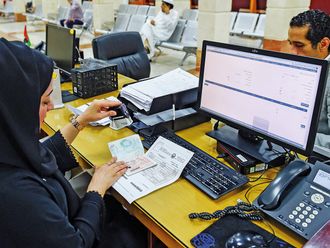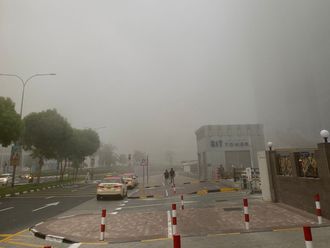Dubai: Factors such as being raised by non-Arabic speaking maids, job opportunities, technology and increased globalisation push Arab youth to communicate in English, professors say.
Dr Ahmad Ali, Associate Professor of Arabic and Translation Studies, American University of Sharjah, said there are two main factors causing Arab youth to prefer speaking in English rather than in their own language.
“Society in general has become more globalised as more foreign manpower is attracted to the UAE. The result is that both Arabs and non-Arabs find themselves in a situation where their own languages are not an adequate option. Therefore, they both resort to a more common ground linguistically, so English becomes the immediate option in today’s world.”
Dr Ali said globalisation and wealth allowed many families to bring external help in the form of maids, servants, drivers, etc… into their homes. As the family breadwinners get busy with work and other commitments, raising the children fell into the hands of non-speakers of Arabic.
“Applying this to the society in general, the result is that exposure to Arabic becomes minimal. The young only speak Arabic in fewer and fewer situations and in more controlled environments. Even then, they find that they do not have to since “communication” is not necessarily dependent on their native tongue.”
Dr Ali believes that it is parents, and not schools and universities, who are responsible as they have control of or are at least aware of the schools, universities and curriculums their children are enrolled in and what is being taught to them.
“[Having said that], parents also understand that they need to equip their children with the tools for the future. The tools widely used nowadays come with English tags since this is the language of business, technology, science, etc. So, what are the alternatives for parents? Additionally, this very same job of equipping young generations for the future is also that of schools and universities.”
Dr Ali said the result is that pragmatically speaking, Arabic will lose the fight since the force that can push it to the forefront is not considering the long-term effects in terms of loss of identity, and deterioration of one’s own language.
“Also, since we are not the producers of technology, we have no say about naming technological products or controlling its content linguistically. The problem will continue until such a time when Arabic becomes the language of technology, business and science, or at least until our achievements in those fields are more than just mere words on paper.”
Unlike what most people believe — that the Arabic curricula needs to change — the problem, Dr Ali believes, lies elsewhere. When a teacher says that many ended up as teachers because they did not get the grades to qualify for engineering or medicine, it points to a deep-seated problem that needs to be resolved.
“The bottom line is that we need to produce good teachers, individuals who prior to taking up the profession of teaching have been properly educated. Additionally, the whole society should realise that Arabic is one of the most important components of one’s identity. So, a concerted effort needs to be made whereby the people, the government, the media and all societal forces should work together to speak the same language.”
Dr Ali said if this is achieved, Arabic will not only be appealing as a language but will also become the language of education as it used to be when it was the only language of science for more than four centuries.
Dr Osama Ali Thawabeh, Associate Professor, Head-Student Services Affairs at The Skyline University Sharjah, said technology, especially social media, has contributed to the dwindling of the Arabic language.
“Technology and social media have played major roles in putting Arabic and most of the other languages in the back seat. Social media has seriously promoted English. The only solution is to start a serious translation to all terminologies. [But] that is difficult and could take decades, based on the current scenario.”
However, Dr Ali disagreed with this premise, believing that it is Arabs and their approach to their language, and not technology, that is to blame.
“Those who make technology export it in their own languages,” he said. ”Those who import technology have no say about it. Since we are technology consumers, we adopt technology as brought to us. As a result, we use social media in exactly the same way — in the language it is given to us,” said Dr Ali.
Until Arabs produce their own technology in Arabic, the Arabic language will remain subordinate to the English language, he believes.
Dr Thawabeh believes promoting the Arabic language to the place it deserves to occupy requires all stakeholders to come together and share the responsibility of enhancing its appeal and reach. “It’s only the government authorities who can enforce certain laws on private and public schools and universities to give more importance to Arabic,” he said. “It is also the responsibility of the NGOs to promote Arabic by conducting initiatives for young students.”












